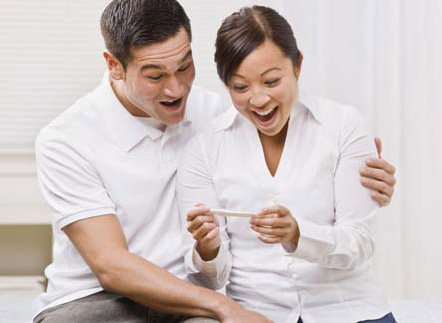Conceiving a baby is the beginning of the greatest adventure of a woman’s life. Whichever age you may be, be it a thriving, young lady in her 20s or an older, more secure woman in her 40s, age does matter to you and your unborn child. Read on to know how your age may affect your pregnancy.
When You are in Your 20s
An average woman’s fertility peaks at the age of 24, making the 20s the best decade for a woman to conceive and carry a baby. The eggs are less likely to have genetic abnormalities, while the risks of health complications (for the mother and the baby) are relatively lower compared to your older counterparts. You would also have more energy – able to recover quicker from looking after your little ones until wee hours of the morning.
In the early 20s, you are probably at the brink of starting your life, family and career and you may find it harder to keep up with the financial and emotional demands of having a child. However, as you age, you will probably gain the maturity and ability to handle the demands of parenthood.
Hitting the Terrific 30s!
Physically, turning 30 (and beyond) marks the beginning of the decline of a woman’s fertility. Note that being 30 and being 35 carries a big difference. The chances of you getting pregnant in your early 30s is only slightly lower than when you were in your late 20s, and the risks of your baby having a birth defect in only slightly higher. However, once you turn 35, the risks – rates of miscarriage, ectopic pregnancy, as well as complications related to pregnancy (high blood pressure, diabetes) – multiplies considerably.
At this age, you are more likely to be more secure financially and you and your partner are more likely to have settled into a comfortable rhythm. Women in their 30s will be able to draw on their life experiences in parenting. Additionally, they also have a lot of energy and resilience left in them, which is needed when parenting young children. Women in their 30s will be able to provide better (emotionally and financially) to their children.
Flaunting the 40s
While it seems wise to have children only after you are established in your career and relationship, the biggest downfall is that it is harder to conceive at this age. Egg viability drops significantly the older you become and if you do get pregnant, there is a 24-54% chance of miscarrying the baby as you age from 40-44 years. Pregnancy complications such as hypertension and diabetes are also likely to rise with age. According to fertility experts, it is almost impossible to get pregnant using your own eggs after you turn 46 and will need to use donor eggs to conceive.
That said, there are women who do get pregnant in their 40s, and with successful pregnancies. Older mums in general, tend to make wiser parenting decisions compared with younger mums. They also have job and financial security as well as a broad range of experience before settling down to have children. Women in their 40s have stable relationships with their partners, which lead to the solid foundation needed for raising a family.
Complications Increase with Age!
Studies have time and time again showed that the risks of a child being born with a birth defect, with Down Syndrome and chromosomal abnormalities being the more common defects, are positively correlated to a mother’s age. The same pattern is observed in the risks of miscarriages.
| Early 20s | Early 30s | Early 40s | |
| Down Syndrome | 1 in 1,667 | 1 in 952 | 1 in 106 |
| Chromosomal abnormality | 1 in 526 | 1 in 385 | 1 in 66 |
| Miscarriage | 12-15% | 14.7% | 25% |
Keeping Your Health in Check
All women age differently and there is no right time to start a family. While you may be physically fit to have a baby in your 20s, research indicates that mothers in their 30s and 40s are more capable financially and emotionally to care for their own and their baby’s wellbeing. Regardless of the age, there will always be challenges and it is up to you to determine how you will cope with the demands of parenthood.
Your Partner’s Role
Although men have been known to father children well into their 60s and 70s, studies have shown that as men age, their sperm quality deteriorates as well. This means conceiving will take a much longer time. And also the genetic defects in the sperm will also increase with age.



Comments